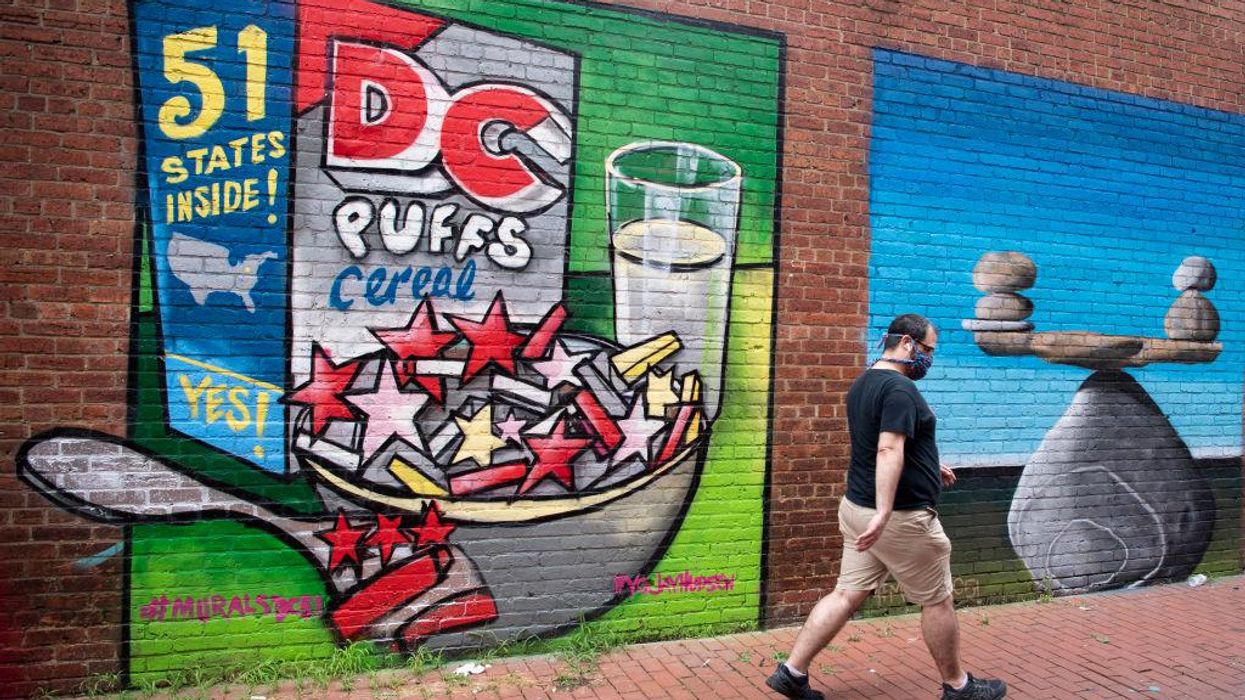
Caroline Brehman/CQ-Roll Call, Inc via Getty Images

Democrats say the people of the district are not represented in the federal government
Senate Democrats on Wednesday reintroduced a bill to make Washington, D.C., a state, an effort supported by President Joe Biden.
The legislation reintroduced today was first drafted and proposed in 2013. It would give citizens of the District of Columbia full authority over local issues and grant them full representation in Congress, the Hill reported.
"This isn't a Republican or Democratic issue; it's an American issue because the lack of fair representation for D.C. residents is clearly inconsistent with the values on which this country was founded," Sen. Tom Carper (D-Del.), the bill's sponsor, said.
Proponents for D.C. statehood argue that the city's population of 712,000 residents is larger than small states like Vermont or Wyoming and comparable to others including Deleware and Alaska. They note that D.C. residents pay the highest per-capita federal income taxes in the U.S., that the city receives between 25% and 30% of its budget from the federal government, and that the only representation the district has in Congress is the non-voting Del. Eleanor Holmes Norton. The issue at hand is D.C. residents in support of statehood believe they are being taxed without representation.
Opponents of D.C. statehood raise constitutional concerns before discussing the merits of whether D.C. should be a state. The Department of Justice has previously advised Congress that it lacks the power to grant D.C. statehood. Article I, Section 8 of the U.S. Constitution stipulates that Congress retains the power "to exercise exclusive legislation in all cases whatsoever, over such District (not exceeding ten Miles square) as may, by Cession of particular States, and the Acceptance of Congress, become the Seat of Government of the United States." The District of Columbia was founded after Maryland and Virginia ceded territory to the federal government that was accepted by Congress for the purpose of creating the nation's capital. The creation of a state government, critics say, would interfere with Congress' exclusive powers over the District.
The response to that argument from D.C. statehood advocates such as D.C. Mayor Muriel Bowser is that the Constitution sets a maximum size for the District, "ten miles square," but does not prohibit Congress from shrinking that area. "Creating the new state will require a simple reduction in the size of the federal district to an unpopulated area which includes the US Capitol, the National Mall, museums, some federal office buildings, the White House, the Supreme Court, and major national monuments," a pro-statehood website set up by Mayor Bowser states.
Regardless of the constitutional questions, it is unlikely the bill will pass, even in a 50-50 Senate with Vice President Kamala Harris breaking tie votes. To overcome a filibuster, Democrats supporting the bill will need to win over at least 10 Republicans, who are not inclined to vote to admit two new likely Democratic senators representing D.C. into the chamber, strengthening the Democratic majority.